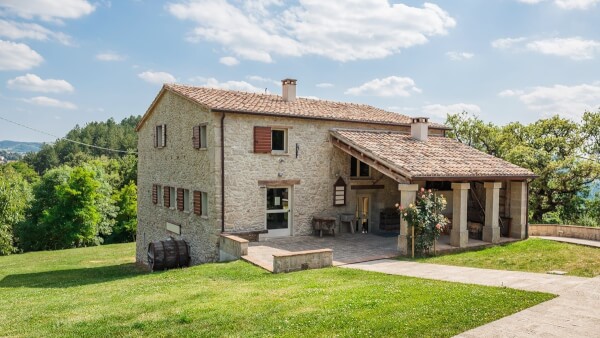Buying property in the US as a foreigner
Read our comprehensive guide to buying property in the US as a foreigner, including average prices, fees, taxes and where to start house hunting.

Despite having very limited land area and consequently high real estate prices, Singapore’s stable and investor-friendly economy attracts a large volume of real estate deals annually. Here, property buyers and sellers can make deals for a wide range of residential, commercial and industrial properties.
With a track record of high returns on property investments over the past decades, many property buyers seek capital gains in the long term, while earning a side income by renting a room or an entire unit. Some homeowners may also buy a place to stay, especially if they’re based in Singapore for the long term and their monthly rent is comparable to the mortgage installments on a similar property.
In the next few sections, you’ll understand the various types of mortgages available, the conditions that need to be met, and the steps to apply for them. You’ll also find out which banks to approach, and the costs involved in getting a mortgage.
Most banks offer mortgages classified as fixed or variable rates. In most cases, banks can loan up to 60% or 80% of the purchase or valuation price, whichever is lower, and the buyer has to top up the remaining amount in cash or from a Central Provident Fund (CPF) account. This Loan to Valuation Ratio (LTV) varies based on the tenure of the loan, the age of the borrower, and the number of concurrent loans held.
You’ll also have to factor in the Total Debt Servicing Ratio (TDSR). The TSDR limits the monthly debt obligations to 60% of a salaried person’s income, or 70% for self-employed or commission-based workers, including debts incurred from credit card bills to car and property loans.
If all goes well, you can start searching for a mortgage package. The simplest is the fixed rate mortgage, where the interest rate of between 1 to 2% remains constant for a period of time, usually between 1 to 5 years. In exchange for the stability, there’s less flexibility on when the loan can be partially or fully redeemed.
As interest rates can work in the favour of the property buyer, you may prefer getting a mortgage pegged to a variable rate like the SIBOR (Singapore Interbank Borrowing Offer Rate) or SOR (Swap Offer Rate). SIBOR is based on the rate that Singapore banks exchange money with each other, and is more resilient to foreign exchange fluctuations than the SOR, which is based on the Singapore Dollar - US Dollar exchange rate.
Board rate mortgages also offer variable interest rates that are bank-defined and rarely transparent to the property buyer. However, the interest rate is usually more stable and may be a good option if priced much lower than a SIBOR or SOR-based mortgage.
Increasingly popular in recent years, the fixed deposit-pegged mortgage follows a bank’s fixed deposit interest rates, which offers both stability and transparency. Nevertheless, the fixed deposit rate is still determined by the bank, and isn’t independently controlled by the market.
Less common but attractive to cash-rich property buyers, the deposit matching interest offset mortgage maintains a special savings account and a mortgage at the same time. This savings account returns a high interest rate, by as much as 70% of the mortgage interest, which is then used to offset the mortgage installments. The net result is a huge discount off the overall interest payable to the bank, but only if you keep your huge pile of cash with the particular bank offering the mortgage. An example is Standard Chartered’s MortgageOne.
Besides rate-based mortgages, banks also offer interest-only mortgages, where only the interest is payable at the start of the loan. This might be a good option if you’re starting out in your career, and expect to earn more money to pay off the bulk of the loan in the future. The tradeoff is an more expensive loan overall, and is restricted to only commercial and industrial properties in Singapore.
Banks in Singapore are very competitive and regularly offer new promotions and products, hence it pays to find out what each bank is offering at the moment. You’ll be able to get the best deal by negotiating directly with a banker and comparing their quotes against all the other offers you receive.
You may engage a broker to help in this, and many brokers now earn a fee from the banks instead of the consumer. However, brokers may be biased to a few banks and you’ll need to do some research yourself too.
Foreigners and non-residents are only permitted to purchase certain types of properties approved by the Singapore Land Authority and are subject to an additional stamp duty of 15% for a residential property, even for a first time purchase. Nationals from the United States, Switzerland, Liechtenstein, Norway and Iceland are exempted from this rule under Free Trade Agreements though.
Once the property is approved for purchase, the mortgage application process is the same for both locals and foreigners.
Banks will need an ID and recent income documents to determine the maximum amount that can be loaned to you. These documents include:
If a property is already confirmed for purchase, the bank will also need:
To get a mortgage in Singapore, here are the steps to follow:
To purchase a property in Singapore, you’ll be required to pay:
| Payment Name | Fee Amount |
|---|---|
| OTP fee to purchase property | Usually 1% of purchase price for private propertyBetween S$1 to S$1,000 for HDB flats |
| Option exercise fee (includes fee paid for OTP) | Usually 4% of purchase price for private propertyMaximum S$5,000 for HDB flat |
| Downpayment | Difference between the purchase price and approved mortgage, minus the option fees already paid |
| Conveyance fees for legal services | S$2,000 to S$3,000 |
| Buyer’s Stamp duty | First S$180,000 - 1%Next S$180,000 - 2%Remaining amount - 3% |
| Additional Buyer’s Stamp Duty (ABSD) only for residential properties | Singapore PR purchasing 1st property - 5%Singapore PR purchasing 2nd or more property - 10%Foreigner purchasing any property - 10% |
| Valuation fee | Between S$140 to S$500 depending on property type |
| HDB administrative fees | S$10 |
| Resale application fee for HDB flats | S$40 to S$80 |
| Agent Fees | 1-2% of purchase price |
| Fire Insurance | S$1.80 - S$4 |
With such hefty upfront payments required, you’ll have to prepare sufficient funds beforehand. If you’re planning to send money to Singapore from an account in another country to help fund your purchase, you should try out Wise. They’ll charge a low, transparent fee, and give you the real exchange rate - the same rate you find on Google.
You can even sign up for a Wise Borderless account, where you can hold 27 different currencies and manage your money in a more cost-effective way. Make sure you don’t face any unnecessary charges before you’re buying that new place in Singapore.
You can contact any of these major banks to apply for a mortgage
Alternatively, contact these brokers to help in your search:
| Term | Meaning |
|---|---|
| Home loan | Term used more often in Singapore to refer to a mortgage. |
| Stamp duty | The tax paid to the Inland Revenue Authority of Singapore to complete the paperwork involving real estate transactions. |
| In-principle approval | A pre-approved loan issued by a bank, so you can proceed to find a property within your budget. |
| HDB | Housing Development Board, the government agency in charge of building and governing regulations on public housing. |
| CPF | Central Provident Fund, a national retirement fund that mandates every Singaporean and PR to contribute part of their monthly income into. Foreigners don’t need to maintain an account. |
Getting a mortgage is a huge commitment that requires a huge cash outlay and regular repayments on a fixed and illiquid asset. However, purchasing real estate in Singapore is an excellent investment, as historical data has shown good returns in a mature market regulated carefully by the authorities.
To get the best deal, you’ll have to do some research and compare the mortgage products offered by the many banks in Singapore, or work with a trusted broker. With property prices easily extending past S$1 mil in recent years, every bit shaved off the interest rate matters!
*Please see terms of use and product availability for your region or visit Wise fees and pricing for the most up to date pricing and fee information.
This publication is provided for general information purposes and does not constitute legal, tax or other professional advice from Wise Payments Limited or its subsidiaries and its affiliates, and it is not intended as a substitute for obtaining advice from a financial advisor or any other professional.
We make no representations, warranties or guarantees, whether expressed or implied, that the content in the publication is accurate, complete or up to date.

Read our comprehensive guide to buying property in the US as a foreigner, including average prices, fees, taxes and where to start house hunting.

Read our comprehensive guide to buying property in Vietnam as a foreigner, including average prices, fees, taxes and where to start house hunting.

Read our comprehensive guide to buying property in Egypt as a foreigner, including average prices, fees, taxes and where to start house hunting.

Read our comprehensive guide to buying property in Austria as a foreigner, including average prices, fees, taxes and where to start house hunting.

Getting ready to buy a property abroad? Read our guide on mortgage for overseas property, including the application process and costs involved.

How much does it cost to build a house in Italy as a UK expat? Find out in our essential guide, covering everything you need to know.